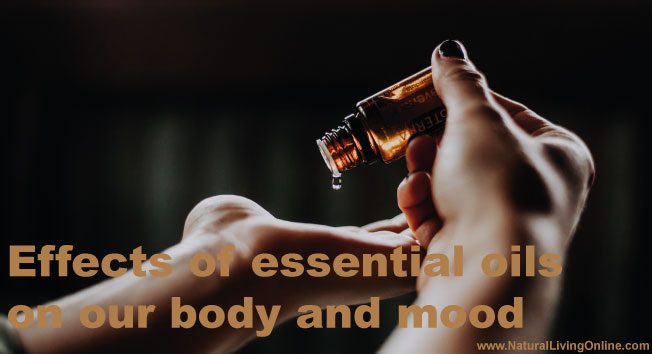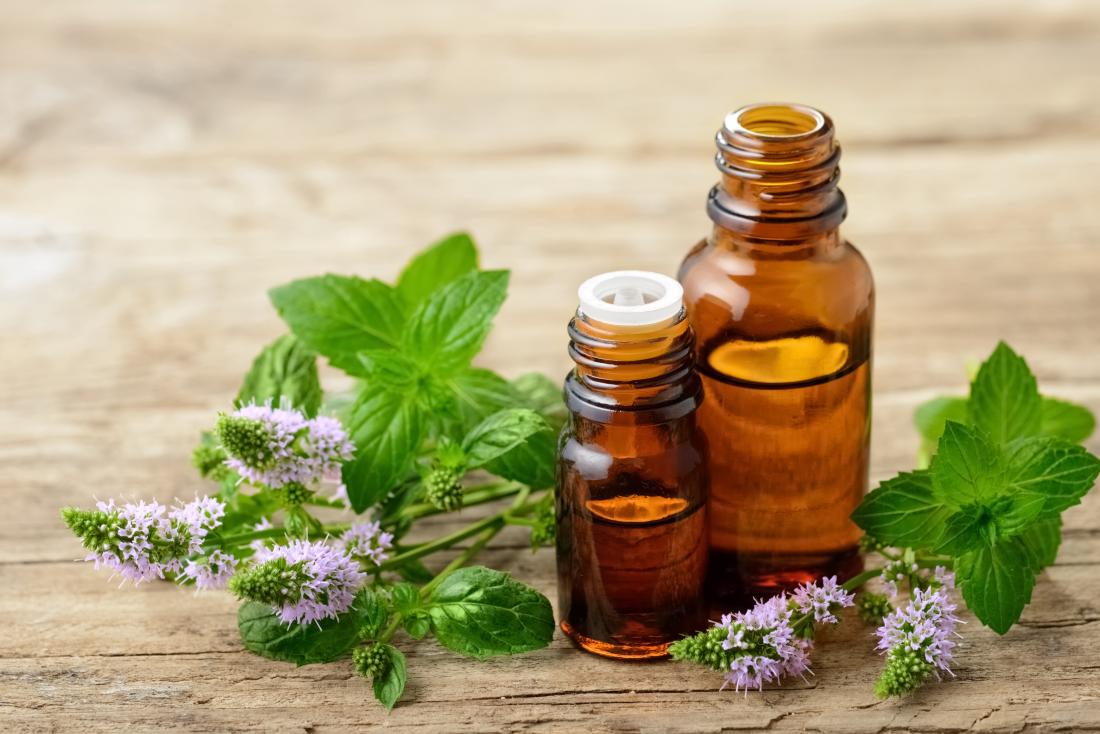Vetiver oil is derived from the roots of the vetiver plant, and has a long history of use in traditional medicine. Vetiver essential oil is beneficial for stress, anxiety and depression, reduce inflammation and pain, ease respiratory issues such as bronchitis, colds and flu, and alleviate insomnia.
Essential Oil Profile / Monograph
Botanical Name: Vetiveria zizanioides
Common Names: Vetiver, khus
Plant Family: Poaceae
Countries of origin: India, Sri Lanka, Haiti, Indonesia
Extraction Method: Steam distillation
Parts Used: Rootlets and rhizomes
Essential Oil smell: Woody, smoky, earthy
Essential Oil Color: Brown to reddish brown
Viscosity: Medium
Perfumery Note: Base
Strength of Aroma: Strong
Blends Well With: Cedarwood, rose, jasmine, ylang-ylang
Therapeutic Properties: Anti-inflammatory, antispasmodic, astringent, diuretic, febrifuge, sedative
Uses: Insomnia, anxiety, nervousness, muscle aches and pains
Contraindications: There are no known drug interactions with vetiver essential oil. However, as with any essential oil, it’s best to consult with a healthcare professional before using vetiver essential oil if you are taking any medications.
Side Effects: Vetiver essential oil is generally considered safe when used properly. However, there are a few potential side effects that you should be aware of.
– Vetiver oil can cause skin irritation in some people. If you have sensitive skin, it’s best to do a patch test before using vetiver oil on your skin.
– Vetiver oil can also cause headaches in some people. If you experience any headaches after using vetiver oil, discontinue use and consult with a healthcare professional.
– Vetiver oil should not be used by pregnant or breastfeeding women. If you are pregnant or breastfeeding, it’s best to consult with a healthcare professional before using vetiver oil.
– Vetiver oil should not be used on open wounds. If you have any open wounds, it’s best to consult with a healthcare professional before using vetiver oil.
– Vetiver oil should not be used on children under the age of 12. If you are considering using vetiver oil on a child, it’s best to consult with a healthcare professional first.
Chemical Constituents with percentages:
acids-vetivenic (0.80%), vetivenyl acetate (0.40%), isovalerate (0.26%),
sesquiterpenes-beta-vetivone (22.00%), alpha-vetivone (12.00%)
alcohols-nerolidol (24.60%), beta-bourbonene (11.60%), beta-vetivanol (0.40%)
ketones-vetiverone (15.00%), isovetiverone (11.00%)
esters-vetivenyl acetate (0.40%)
terpenes-alpha-pinene (0.26%), limonene ( trace)
phenols-carvacrol (0.80%), thymol (0.13%)
sesquiterpene-beta-vetivone (22.00%), alpha-vetivone (12.00%)
a-terpineol (11.40%), nerolidol (24.60%), beta-bourbonene (11.60%), beta-vetivanol (0.40%)
vetiverone (15.00%), isovetiverone (11.00%)
The chemical constituents of vetiver oil vary depending on the location and soil type where the vetiver plants are grown, as well as the method of extraction used. The most common constituents found in vetiver oil are listed above.
What is Vetiver?
Vetiver is a perennial grass that grows in tropical regions like India, the Caribbean, Southeast Asia, and Africa. It can reach heights of up to five feet (150 cm) with long blades that are green on top and whitish underneath. The vetiver roots produce oils which have been used medicinally for centuries all over the world as well as being added into perfumes due to their pleasant aroma. The vetivers plant has many different names including khus-khus grass or Indian vetver among others depending upon where one lives; however no matter what name we call it by its usage remains the same. These plants are also known for their ability to grow in poor soil conditions and even waterlogged areas where other crops might fail or not thrive as well making them an ideal crop choice when trying to maximize land use efficiency.
Benefits
Some of the key benefits of vetiver essential oil include its ability to:
– Calm and soothe emotions
– Soothe anxiety
– Reduce inflammation and pain (ease arthritis symptoms or muscle aches)
– Ease respiratory issues such as bronchitis, colds and flu
– Vetiver oil benefits for brain include reducing inflammation throughout the body, including the brain. This can lead to better cognitive function and protection against degenerative diseases like Alzheimer’s or Parkinson’s.
– Alleviate insomnia or sleep problems due to its sedative properties. There are numerous vetiver essential oil benefits for sleep. It can help calm nerves which will allow you to fall asleep more easily at night time without feeling restless during the day from lack of restful sleep. This may also improve alertness in people who are suffering from depression because it promotes relaxation when inhaled directly into lungs through inhalation therapy devices like humidifiers or diffusers!
Internal Use
While vetiver essential oil is generally considered safe for internal use, it is always best to speak with a healthcare professional before taking any new supplement, especially if you are pregnant, breastfeeding or have any other medical conditions. Vetiver oil has been used historically as a herbal medicine to help with various gastrointestinal issues such as indigestion, nausea and diarrhea. It is thought that the carminative properties of vetiver oil can help to relieve these issues by reducing gas and bloating. Vetiver oil can be taken internally by adding a few drops to water or juice, or it can be added to food.
Topical Use
Vetiver essential oil can be used topically to help soothe various skin conditions such as eczema, psoriasis and acne. It is thought that the anti-inflammatory properties of vetiver oil can help to reduce swelling and redness associated with these conditions. Vetiver oil can be diluted with a carrier oil and applied directly to the affected area, or it can be added to lotions, creams or other topical products.
Vetiver essential oil benefits for skin
The anti-inflammatory and antioxidant properties of vetiver essential oil make it an excellent choice for use in skincare products. It can help to reduce the appearance of wrinkles and fine lines, as well as improve the overall tone and texture of the skin. Vetiver oil can also help to soothe irritated skin and reduce the redness and swelling associated with various skin conditions such as eczema, psoriasis and acne. It is also a good hair growth remedy.
Here are some ways to use vetiver oil
– Add a few drops to your bathtub to relax your muscles and soothe your mind after a long day.
– Mix with carrier oil like jojoba (Simmondsia chinensis) or coconut (Cocos nucifera) oil and apply topically to reduce inflammation and pain.
– Apply to dry skin for an instant moisture boost that won’t clog pores. Use it on your face as part of a weekly facial routine too! It can also be used in lieu of lotion if you’re out and about without any moisturizer handy since this oil sinks into the epidermis quickly thanks its lightweight consistency while still providing all day protection against environmental aggressors such as wind burn or sun damage from UV rays during those hot summer months when we tend not need much clothing at all because most people are wearing shorts instead.
– Apply topically on mosquito bites, bee stings, cold sores etc., as well as other skin irritations such as eczema or psoriasis by diluting it with a carrier oil before applying directly over the affected area. The anti inflammatory properties in this plant based remedy will help relieve itching while healing any cuts or wounds from scratching too much at one time which could result in scarring that may not heal properly due to constant irritation caused when using harsh cleansers containing alcohols like rubbing alcohol (isopropanol) which would dry out the skin further making matters worse rather than better off! Vetiver oil is a natural anti-inflammatory agent that can help reduce redness, swelling, and promote healing.
Vetiver essential oil benefits for hair
Vetiver oil can also be used to improve the condition of the hair and scalp. It is thought to help stimulate hair growth, as well as strengthen and condition the hair. Vetiver oil can be added to shampoo or conditioner, or it can be diluted with a carrier oil and applied directly to the scalp.
For kids
Vetiver essential oil is generally considered safe for use around children, however it is always best to speak with a healthcare professional before using any new product, especially on young children. Vetiver oil can be used to help soothe various childhood ailments such as colic, teething pain and insomnia. It can also be used in diffusers or vaporizers to help improve the air quality in a child’s room.
For pets
Vetiver essential oil is safe for use around pets, however it is always best to speak with a healthcare professional before using any new product, especially on animals. Vetiver oil can be used to help soothe various ailments in pets such as anxiety, arthritis and skin conditions. It can also be used in diffusers or vaporizers to help improve the air quality in a pet’s room.
Aromatherapy
Vetiver essential oil has a deep, earthy aroma that can be used to promote relaxation and calmness. It is often used in diffusers or vaporizers to help improve the air quality in a room. Vetiver oil can also be added to lotions, creams or other products to create a relaxing massage.
Diffuser blends for aromatherapy with Vetiver
Vetiver and Lavender: This combination is perfect for creating a calming and relaxing environment.
Vetiver and Bergamot: This combination can help to reduce stress and promote feelings of well-being.
Vetiver and Frankincense: This combination can help to improve focus and concentration.
Vetiver and Lemon: This combination can help to refresh and uplift the mood.
Vetiver and Peppermint: This combination can help to improve mental clarity and focus.
Vetiver and Rosemary: This combination can help to improve circulation and promote healthy skin.
Vetiver and Ylang Ylang: This combination can help to reduce anxiety and promote feelings of relaxation.
DIY recipes with Vetiver Oil
Vetiver Soap: This soap recipe is perfect for those who suffer from acne, eczema or psoriasis. The anti-inflammatory properties of vetiver oil can help to soothe and calm the skin.
Ingredients:
– ½ cup vetiver oil
– ½ cup olive oil
– ¼ cup coconut oil
– ¼ cup castor oil
– ¾ cup lye
– ¾ cup water
Instructions:
– Combine the oils and lye in a glass bowl. Slowly add the lye to the oils while stirring constantly.
– Heat the mixture in a double boiler until it reaches 130 degrees Fahrenheit.
– Remove from the heat and stir until the mixture thickens and turns a light brown color.
– Pour into soap molds and let cool for 24 hours.
– Cut the soap into bars and let cure for four weeks.
Vetiver Body Butter: This body butter recipe is perfect for those who suffer from dry, itchy skin. The vetiver oil will help to soothe and calm the skin while the shea butter will provide intense moisture.
Ingredients:
– ½ cup vetiver oil
– ¼ cup shea butter
– ¼ cup cocoa butter
– ¼ cup coconut oil
– ¼ cup jojoba oil
Instructions:
– Combine the oils in a glass bowl. Heat the mixture in a double boiler until it reaches 130 degrees Fahrenheit.
– Remove from the heat and stir until the mixture thickens and turns a light brown color.
– Pour into body butter jars and let cool.
– Massage into the skin as needed.
Vetiver Bath Salts: These bath salts are perfect for those who suffer from muscle pain, tension or inflammation. The vetiver oil will help to soothe and calm the body while the Epsom salt will provide relief from pain and tension.
Ingredients:
– ½ cup vetiver oil
– ¼ cup Epsom salt
– ¼ cup baking soda
– ¼ cup sea salt
Instructions:
– Combine the ingredients in a glass bowl. Mix well and pour into a jar.
– Add ½ cup of the mixture to a warm bath and soak for 20 minutes.
Vetiver Oil Massage Oil: This massage oil recipe is perfect for those who are looking to relax and unwind. The vetiver oil can help to soothe muscles and promote relaxation.
Ingredients:
– ½ cup vetiver oil
– ¼ cup jojoba oil
– ¼ cup almond oil
Instructions:
– Combine the ingredients in a glass bowl. Mix well and pour into a dark glass bottle.
– Massage the skin as needed. Store in a cool, dark place.
Vetiver Room Spray: This room spray recipe is perfect for those who are looking to improve the air quality in their home. The vetiver oil can help to purify the air and promote feelings of calmness and relaxation.
Ingredients:
– ½ cup vetiver oil
– ¼ cup distilled water
– ¼ cup witch hazel
Instructions:
– Combine the ingredients in a glass bowl. Mix well and pour into a dark glass bottle.
– Spray into the air as needed. Store in a cool, dark place.
Frequently Asked Questions
Who should not use Vetiver oil?
Vetiver oil should not be used by pregnant or breastfeeding women. It should also be avoided by those with high blood pressure, epilepsy or other seizure disorders.
Does Vetiver oil interact with any medicine?
There is a potential for vetiver oil to interact with certain medications, such as blood thinners and sedatives. If you are taking any medication, consult with your doctor before using vetiver oil.
Can you use Vetiver oil everyday?
Vetiver oil can be used safely on a daily basis. However, if you experience any irritation, discontinue use and consult with your doctor.
Is it OK to diffuse Vetiver oil?
Yes, it is safe to diffuse vetiver oil.
How to use vetiver oil for muscle pain?
Vetiver oil can be used for muscle pain by massaging it into the affected area. Dilute with olive oil and gently massage over affected area. Do a patch test before using is on larger area to check whether your skin is not allergic to vetiver oil.
Can I use Vetiver oil for skin?
Vetiver oil can be used safely on the skin. It is good for acne, eczema and dry skin. Always use the diluted form.
Is Vetiver oil good for hair?
Vetiver oil can be used to promote healthy hair growth. It can also help to prevent dandruff and scalp conditions. Apply vetiver oil (diluted with almond oil) to the scalp and massage gently. Leave on for 30 minutes before shampooing as usual. Rinse thoroughly. Do this once a week for best results.
References:
Traditional and medicinal uses of vetiver
Vetiver Essential Oil in Cosmetics: What Is New?
The Medical Benefits of Vetiver Essential Oil
Vetiver Oil and Its Sedative Effect
Activity of Vetiver Extracts and Essential Oil against Meloidogyne incognita
This website does not provide medical advice.
All information provided on this website, and on associated social media networks, including but not limited to texts, images, and numbers are for general information purpose only. It is not intended as medical advice and it does not include all possible precautions, side effects, or interactions that may occur. Neither NaturalLivingOnline.com nor its author/founder take responsibility for how you use this information. Statements contained on NaturalLivingOnline.com have not been evaluated by the FDA. You should conduct thorough research via multiple sources and consult your physician or qualified doctor before using any essential oil or herbal remedy. Information on NaturalLivingOnline.com must not be relied upon for medical, legal, financial or other decisions.













